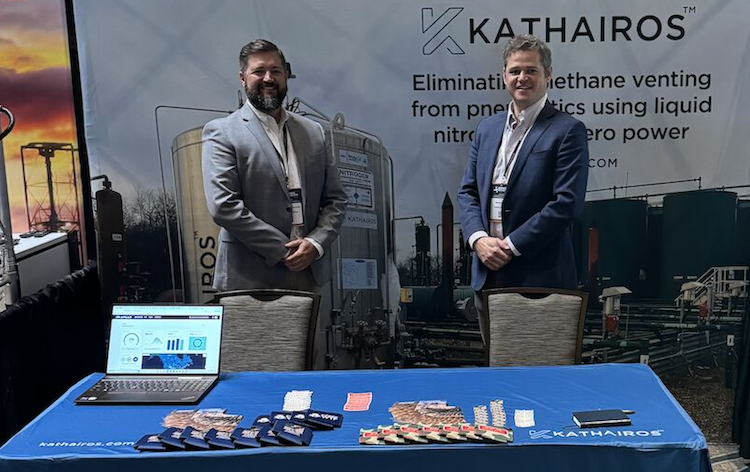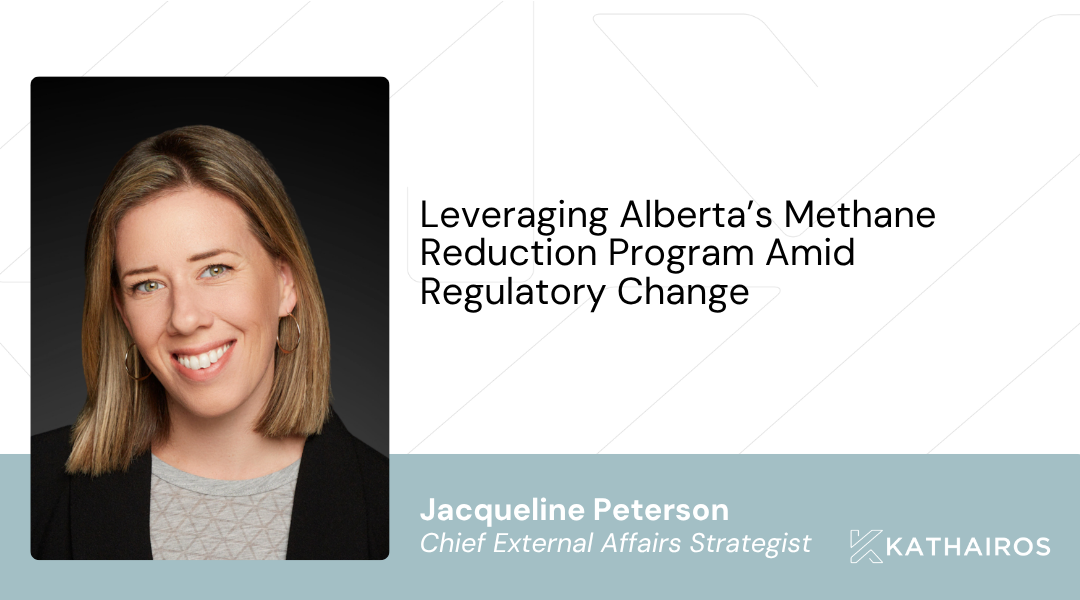.png)
Kathairos has emerged as the leading North American solution for methane elimination from pneumatics, with more than 2,400 systems in operation across North America and over 70 major oil and gas producer partners.
In this post
As the United States intensifies its regulatory oversight, the oil and gas industry encounters a critical juncture.
The new Environmental Protection Agency (EPA) regulations came into effect on May 7th, catalyzed by the Inflation Reduction Act (IRA).
Now, the sector is poised for a significant transformation in how it monitors and manages its environmental footprint. The latest EPA regulations set stringent new benchmarks for both new and existing oil and gas operations:
- Zero-emission standards for process controllers: Owners and operators must install zero-emission pneumatic controllers and pumps at all new or modified facilities. Pneumatic venting must be converted to zero-emission alternatives at existing facilities by the end of 2028.
- Super-Emitter Program: Certified third parties will now be able to detect and report significant release events (>100kg CH4/h) to the EPA. Facility owners and operators will be required to investigate the source of the emissions within 5 days of being notified of the event and take corrective action (or develop a corrective action plan) shortly thereafter.
- Strict Monitoring Requirements: Oil and gas facilities must be monitored for leaks multiple times per year using approved methane detection technologies.
- Expanded Scope of Regulated Sources: In addition to pneumatic pumps and controllers, the regulations require significant emission reductions from storage tanks, dry seal compressors, flares/combustors and liquids unloading.
The Impact of Methane on Climate Change
Methane is a potent greenhouse gas, with a warming potential about 28 times greater than CO2 over 100 years and 84 times more within the first 20 years of its release. Despite accounting for nearly a third of global warming, methane management has historically received less than 1% of climate finance. Effective control of methane emissions is vital not only for environmental safety but also for enhancing worker safety and community health due to its high toxicity at concentrated levels.
Advancements in MRV Technology
These regulatory changes are propelling advancements in Methane Monitoring, Reporting, and Verification (MRV), revealing that methane emissions are often significantly higher than previously estimated.
At the same time, they are presenting an opportunity for the industry to proactively tackle these emissions and work towards absolute emission reduction targets. As a leading solution in replacing traditional methane venting practices, Kathairos :
Advanced nitrogen-driven systems offer a zero-emission alternative to conventional pneumatic devices that typically emit methane. By utilizing nitrogen, an inert gas, we ensure there are no emissions during operations, preventing methane from being released into the atmosphere.
Customized Retrofitting: Recognizing the unique needs of each operation, Katharios provides customized retrofitting services to replace outdated and leak-prone equipment. In this way, our solutions seamlessly enhance operational efficiency and compliance.
Impact and Advantages
Adopting Kathairos Solutions' technologies helps producers comply with the new EPA mandates, and positions them as environmental leaders.
Our clients can completely eliminate methane emissions from pneumatic venting, streamline operations, and achieve significant cost savings over time. This proactive approach reduces the risk of fines associated with methane taxes and minimizes the volume of valuable gas lost.
Conclusion
As we navigate new regulatory landscapes, Oil and Gas Producers need to keep exploring the advancements in MRV technology necessary for effective methane management.
By embracing advanced, non-emitting technologies, producers achieve compliance, enhance operational efficiencies, and contribute to a more sustainable future.
Are you ready to transform your approach to methane management? Speak to one of our experts to discover how North America’s producers are leading in sustainability and compliance.
Explore more posts from Kathairos

RSVP: North America’s Best Energy, Oil & Gas Conferences and Events in 2026
.png)
What You Need to Know About Canada’s Final Methane Regulations—and How They Align with the Alberta MOU

